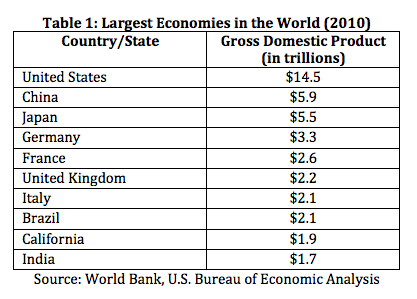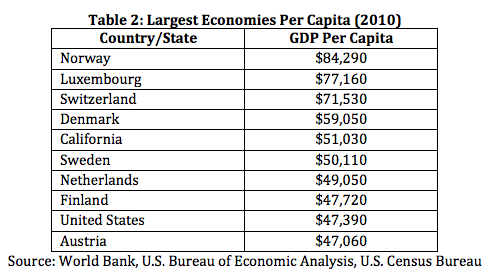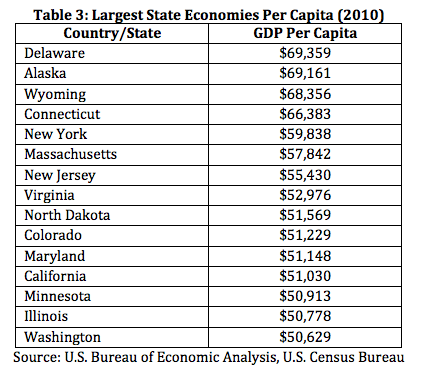Mark Twain once said, “It’s not the size of the dog in the fight, it’s the size of the fight in the dog.” This remark came to mind a few weeks ago when the Center for Continuing Study of the California Economy released revised rankings of the size of the state’s economy.
These rankings compare California’s economic prowess to that of the world’s largest economic powers. And across the state there was disappointment – mixed with a feeling of resignation – when California’s Gross Domestic Product (GDP) was shown to have slipped from eighth largest to ninth. Our $1.9 trillion economy now falls behind Brazil’s ($2.1 trillion) and just ahead of India’s ($1.7 trillion).
But so what? These types of comparisons are never as meaningful as they initially seem.
Notwithstanding the fact that California isn’t actually its own country, it only has 37 million residents. By contrast, Brazil’s population (195 million) is more than 5 times as large and India’s population (1.171 billion) is more than 31 times as large. So one would expect countries like Brazil and India to have large economies on the basis of labor force alone.
A more useful comparison would instead look at per capita GDP. By accounting for population, per capita GDP yields a much better indication – although still incomplete – of a country’s level of wealth and productivity.
And on this score, California fares much better compared to other countries. If California were a country, its per capita GDP of $51,030 would place it fifth in the world after Norway, Luxembourg, Switzerland, and Denmark.
So California’s prosperity actually rivals that of some, although not all, Northern European countries. (Remarkably, Norway’s per capita GDP is some 65 percent higher.)
But again, this (happier) result is not quite the end of the story. That’s because the data also shows that if eleven other states were countries, they would all do better than California on the world scene.
California’s per capita GDP is below that of large states like New York, New Jersey, and Virginia. It is also below that of small states like Delaware, Wyoming, and North Dakota.
Thankfully, we can at least say that California is more prosperous than Minnesota!
This begs the question why isn’t California the most prosperous state in the Union?
After all, we can boast having technology and innovation hubs in the north and south; having the most productive agricultural land in the nation (as measured by cash farm receipts); and being one of the country’s largest oil producers. We have some of the world’s best public and private research universities. And we are blessed with the state’s climate and unparalleled beauty – including hundreds of miles of beaches, Yosemite, and Lake Tahoe – which attract both tourists and new residents.
Some of my previous research suggests a few reasons. California would see higher prosperity if it saw improvements in K-12 education, reductions in the crime rate, more high-quality jobs, and a lower state and local tax burden.
None of these are easy solutions. And unfortunately, they run counter to what we are currently seeing in Sacramento: multiple initiatives to raise income and sales taxes; a proposal to provide more tax money to education without requiring any reform; and wholesale reductions in the state’s prison population.
Whether we have the will to resist these (and other) politically expedient measures in favor of more constructive reforms will become clear in the coming months. It all depends on the size of the fight in California.




